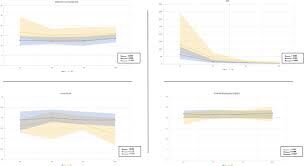PIM-3 score and abnormal serum sodium levels related to development of AKI

Sodium and chloride disturbances have attracted increasing attention in recent years. Many pathophysiological effects are associated with hyperchloremia, including reduction in mean arterial pressure and acute renal disease.
PIM-3 score and abnormal serum sodium levels are correlated with AKI development suggests a new study published in the BMC Nephrology
Sodium and chloride disturbances have attracted increasing attention in recent years. Many pathophysiological effects are associated with hyperchloremia, including reduction in mean arterial pressure and acute renal disease. Pediatric patients undergoing liver transplantation are at risk of developing various electrolyte and biochemical abnormalities, with an impact on their postoperative outcomes.
A study was conducted to analyze the impacts of serum sodium and chloride levels on prognosis of Pediatric Liver Transplant receptors.
This was a retrospective analytical observational study performed in a single transplant reference center in Sao Paulo, Brazil. Included patients were pediatric patients who underwent liver transplantation between January 2015 and July 2019. Statistical regression analysis and General Estimating Equations analysis were performed to evaluate the impacts of sodium and chloride disturbances on the development of acute renal failure and mortality.
Results
A total of 143 patients were included in this study. The main diagnosis was Biliary Atresia (62.9%). Twenty-seven patients died (18.9%), and graft dysfunction was the main cause of death (29.6%). The only variable individually associated with 28-days mortality was PIM-3 score
Forty-one patients (28.6%) developed moderate or severe AKI. PIM-3 score, hypernatremia and hyponatremia were independently associated with the development of moderate/severe AKI.
In pediatric patients after liver transplantation, PIM-3 score, and abnormal serum sodium levels were correlated with AKI development.
Reference:
Luglio, M., de Carvalho, W.B., Tannuri, U. et al. Effects of serum sodium and chloride levels in the outcome of critically ill pediatric patients in the post-operative period of liver transplantation. BMC Nephrol 24, 141 (2023). https://doi.org/10.1186/s12882-023-03195-1
Keywords:
BMC Nephrology, Luglio, M., de Carvalho, W.B., Tannuri, U, Effects, serum sodium, chloride levels, outcome, critically ill, pediatric patients, post-operative period, liver transplantation, BMC Nephrology
from Medical News, Health News Latest, Medical News Today - Medical Dialogues | https://ift.tt/OFmQiW8
Comments
Post a Comment